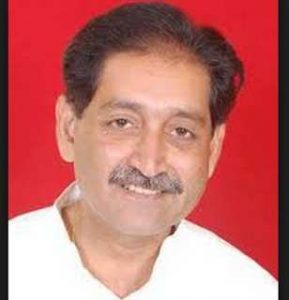Despite the state government refusing to handover the account books of Vyapam for scrutiny, the CAG report has added fuel to the admission and appointments scam that has been hounding Chief Minister Shivraj Singh Chouhan
~By Neeraj Mishra
The Vyapam scam doesn’t fail to spring one surprise after the other. This time it comes in the form of a revelation in the report of the state Comptroller and Auditor General (CAG) that the Shivraj Singh Chouhan government in Madhya Pradesh refuses to recognise as a government department the controversial professional examination board (Vyapam) which illegally admitted thousands of students to medical and engineering colleges and recruited many more to government jobs in the state. The board is currently at the centre of a Rs 20,000 crore scam.
The state government’s refusal to accept it as a government body makes the scam tainted board free from any official audit. The CAG which scrutinised the Madhya Pradesh government’s accounts for 2015-16 was informed by the state government that technically Vyapam, which has been in existence since 1982, was not a government department so it was not obligatory for it to provide its account books.
CAG chief for MP, Saurabh Mallick, made this important observation: “It is a very difficult situation for us where the government exercises direct control over Vyapam and even uses money transferred from its accounts to the treasury but still refuses to provide us the account books.” Mallick was specifically referring to the Rs 13 crore transferred from Vyapam’s accounts to the government treasury in 2016. Vyapam got this money from the fee it charges from applicants.
SHADY HISTORY
India Legal asked a few former chief secretaries of Madhya Pradesh on how the government could declare Vyapam as a quasi-government body. One of them went back to the history of Vyapam to offer an explanation. It was formed by the Arjun Singh government in 1982 with the express intention of conducting professional entrance examinations to government engineering, medical and polytechnic colleges. It was technically a semi-government body which conducted exams and provided the results. The twist came in 2006 when the BJP government handed it the additional responsibility of making recruitments for a plethora of jobs in the government including the forest, police and education departments. This was completely illegal and not what an examination board is meant to do.

Though denied access to the account books, CAG has pointed out in its report that even after 35 years of existence the rules of business of the board have not been framed nor has there been government approval for its functioning. As a result, CAG has pointed out, that several top-level appointments made to the board through fresh contracts and through deputation were illegal and it goes all the way back to the period when Digvijaya Singh was CM. During Singh’s tenure, then technical education minister Raja Pateriya appointed retired professor Yogesh Uprit as Vyapam director in 2002. The same Uprit has now petitioned the Gwalior bench of the high court to appear as witness in the Rs 20,000 crore Vyapam scam case.
The CAG says subsequent appointments of Pankaj Trivedi as the examination controller and JS Bhadoria as director by Laxmikant Sharma, technical education minister in the BJP government were also illegal. Sharma, who is an accused in the Vyapam scam, has already served more than a year in prison. Apart from Pateriya and Sharma another BJP minister Tukoji Rao Pawar has also come under the CAG scanner.
MORE FUEL

The CAG has inescapably added more fuel to the raging scam which came to light in 2013. A Supreme Court order last month had disqualified 634 doctors with immediate effect but a total of 1,087 doctors who graduated in the same period and found guilty by an internal investigation stand to be affected by the judgment. A two-judge bench last July could not reach a decision as Justice Chelameswar was of the view that the students may be let off with a warning and on condition that they do social service. The issue was referred to a three-judge bench headed by CJI Justice Khehar who wrote the unanimous judgment. Dismissing the social service plea he stated unequivocally that “Fraud cannot be allowed to trounce, on the stratagem of public good.”
The most distressing aspect of the whole sordid drama has been the loss of nearly 50 lives over past four years, all related to the scam one way or the other. The scam is representative of everything that is wrong with our higher education system. And investigations into the scam reflects all that is wrong with our policing; shoddy scrutiny of evidence and deliberate acts of omission and commission.
The CAG has pointed out in its report that even after 35 years of existence, rules of business of the board have not been framed.
The state government perhaps worked on the assumption that CAG reports amount to very little when it refused to provide the latter with the Vyapam accounts. After all what does a CAG report mean would have been the thinking. Says CM Payasi former principal secretary of the MP assembly: “It is meant to be a government audit of its own departments to be presented in the state assembly and to be later taken up by the Public Accounts Committee.”
Mallick and his team have raised uncomfortable questions. The CAG report will be cited in the ongoing cases in the Jabalpur High Court where both the government and the judiciary have proceeded on the assumption that Vyapam is a government department being investigated by the SIT and the CBI. But is CAG a toothless tiger? Or have the bureaucrats advising the MP government erred in not providing the accounts and brazenly assumed that CAG’s role is only recommendatory and in due process its report can be ignored in parts or as a whole. But there is a catch—Section 6.5 of Chapter IV of the CAG Audit Standards states that the CAG can report a case to the CVC with its observations of illegalities involved.
If that happens then Shivraj Singh Chouhan may be treading on thin ice.


